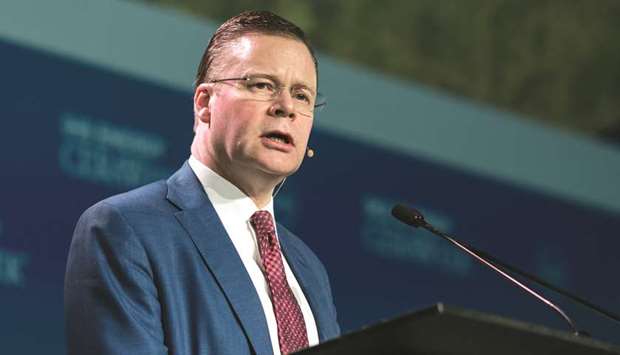Alumina market roller coaster spins price to two-year lows

By Andy Home
LONDON, July 30 (Reuters) – The alumina market has collapsed over the last three months with both Chinese and Western prices now at their lowest levels in two years.
The action in China has been particularly brutal. Spot prices surged to a six-month high of 3,170 yuan per tonne in May as production in the province of Shanxi was disrupted by environmental closures.
So violent has been the subsequent sell-off to below 2,500 yuan that producers are now voluntarily cutting output to try to support prices.
Since alumina is the key metallic input to the aluminium smelting process, bombed-out alumina prices are bad news for an aluminium market that is itself treading heavy water right now.
The London Metal Exchange (LME) three-month aluminium price is currently trading just above the $1,800 per tonne level after touching an 18 month low of $1,745 in June.
Lower alumina prices serve to lower the aluminium production cost-curve, the break-even point for smelters that helps define the market’s downside.
Global smelter profitability is once again beholden to the gyrations of the alumina price with still little evidence that such volatility is being hedged in either the CME Group’s or LME’s new futures contracts.
THE RETURN OF ALUNORTE
The CME alumina price, tellingly, never reacted to the May spike in the Chinese price but rather kept grinding lower to today’s $305 per tonne, a level last visited in June 2017.
The core driver has been the return of the giant 6.3-million tonne per year capacity Alunorte plant in Brazil.
Alunorte had been operating at half capacity since February 2018 under a court order related to allegations of run-offs from a tailings dam holding the “red mud” generated in the refining process.
Operator Hydro was given clearance to resume full output in May this year and Alunorte was already running at 80-85% capacity in June, the company said in its Q2 results. That should rise to 85-95% in the fourth quarter.
Alunorte’s return closes a supply gap in the Western market which had to be filled by Chinese exports, an unusual occurrence in the alumina market.
Chinese exports mushroomed to 1.5 million tonnes last year from just 56,000 tonnes in 2017.
The tide has since turned. Exports have dropped off sharply and the country has returned to being a net importer since January.
The extra supply is no longer needed thanks to the return of Alunorte, the continuing ramp-up of new capacity by Emirates Global Aluminium and stagnant aluminium production.
Metal output outside of China was down by 0.6% in the first half of 2019, according to the International Aluminium Institute.
CHINESE BOOM AND BUST
Chinese alumina prices have boomed and bust in the space of just three months.
Environmental closures in May, triggered by a “red mud” leak at Xinfa Group’s Jiaokou alumina refinery in Shanxi, spooked the local supply chain.
Any impact from those closures, however, has been fleeting. National output dipped appreciably in May but has since bounced back to 6.41 million tonnes in June, the highest monthly run-rate since May 2017.
Cumulative alumina output rose by 3% in the first half of the year and with China’s own aluminium production also flat-lining this year, analysts at Morgan Stanley calculate a 200,000-300,000 tonne surplus in the country. (“Stopping alumina’s slide”, July 29, 2019).
Previous fears of a supply shortfall have been rapidly dialled back and spot prices are now at a level where higher-cost producers in northern regions are suffering “serious losses”, according to Antaike, the research arm of the China Nonferrous Metals Industry Association.
Producers have announced a collective temporary curtailment of 1.5 million tonnes, Antaike says.
As ever with such coordinated announcements by Chinese producers, there’s an element of window-dressing previously scheduled maintenance work, but the real significance is what it says about the margin pain occasioned by falling prices.
Higher-cost producers have in the past been able collectively to support prices around $300 per tonne but with alumina’s own input costs falling, it remains to be seen how disciplined supply will be this time around.
There is growing speculation among analysts that China’s alumina sector is heading for the same sort of structural reform treatment already imposed on the smelter segment of the production chain.
That might be a source of long-term support to the alumina price but for now it’s down to whether Chinese producers can curtail output sufficiently to balance the domestic market.
RIDING THE ROLLER COASTER
Alumina has been on a high-tempo, high-volatilty price trajectory over the last couple of years.
It was above $600 per tonne as recently as September 2018 before crashing to its current producer pain levels.
The price of alumina was once linked to that of aluminium. Producers embraced spot trading several years ago, arguing that alumina supply-demand fundamentals were different from those of the metallic product.
They have turned out to be right, although not perhaps in the way they imagined. Alumina has turned out to be a much more volatile package of drivers than aluminium.
What’s curious is that all this volatility hasn’t inspired much interest in using the paper market to hedge price risk.
The LME’s newly-launched alumina contract didn’t trade at all through June. CME’s contract, which started trading in 2016, has seen only sporadic volumes since inception. Activity this year has almost totally dried up with just 240 contracts traded in January-June.
The Shanghai Futures Exchange (ShFE) is undeterred and has promised its own contract later this year.
It’s possible that last year’s high prices actively deterred producer hedging interest but with the outlook increasingly bearish, that might change.
ADVERTISEMENT
Morgan Stanley sees “near term price support around $300 per tonne, with risk to the downside”.
However, given the excitement of the last two years, you wouldn’t bet against a few more spins of what Antaike calls the alumina “roller coaster”.
($1 = 6.8876 yuan)









